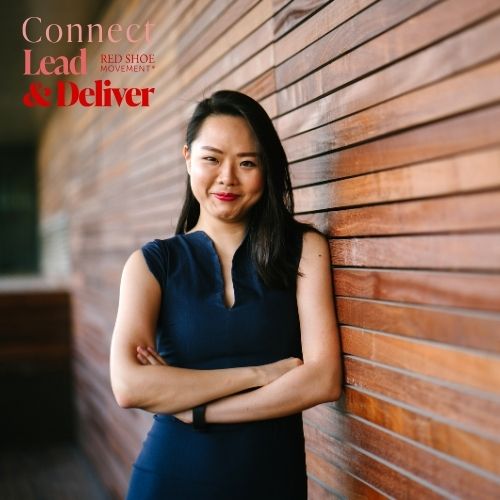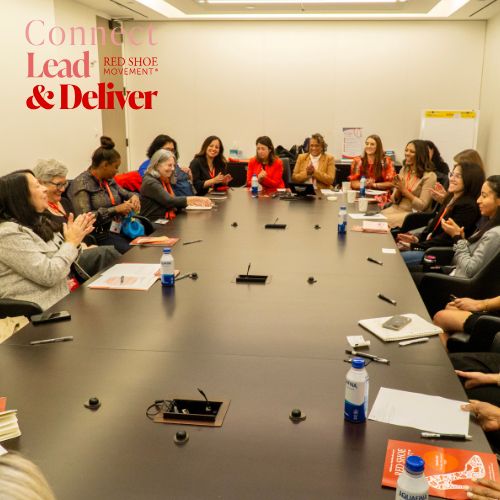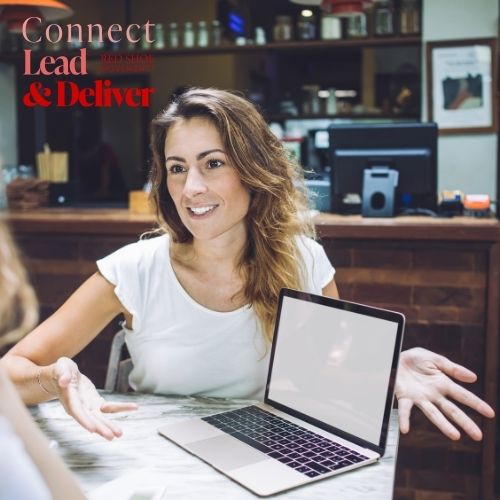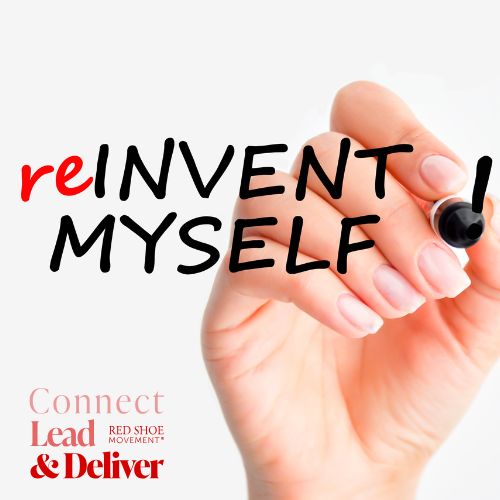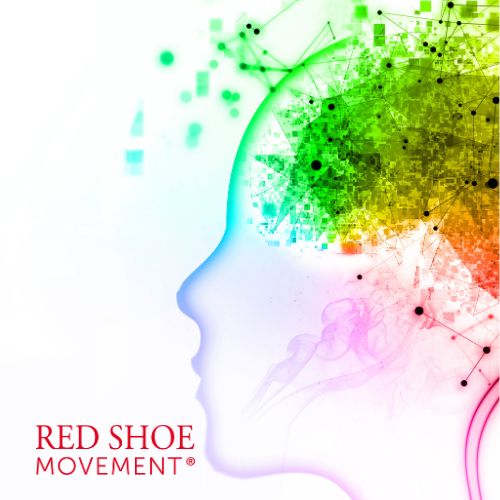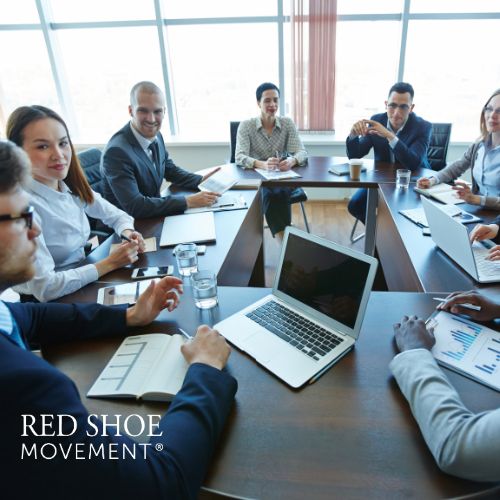Bitwise Industries’ Irma Olguin Jr. is focused on bringing untapped talent into tech. In opening doors and pulling up chairs for people from disadvantaged backgrounds who never imagined they could sit at the tech table, let alone make a living and enrich the conversation.
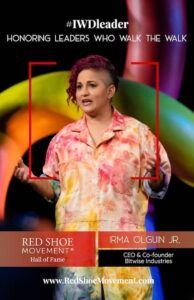
Irma knows firsthand what being given that unlikely opportunity can bloom into. Her own story of success begins when she decided to take the PSAT at school on a whim, leading to a scholarship and a major that was chosen in a pretty unconventional way. Now, she wants to provide the same opportunity for people with similar backgrounds who don’t believe they can belong in the world of tech – where she clearly belongs and has thrived and helped others thrive.
Through Bitwise Industries, Irma Olguin Jr. works to remove the barriers standing between people who have never even thought of programming as an option and the life-changing opportunities in the rapidly growing world of tech. For leveling the playing field and creating opportunities and platforms for members of underrepresented communities, we honor Irma Olguin Jr. with the 2022 Hall of Fame.
Red Shoe Movement: Ten Years Building a Community
Irma Olguin Jr.: An Unbelievable Tech Origin Story
RED SHOE MOVEMENT – Can you tell us a little bit about you and the serendipitous events that led to where you are? How important is your hometown, Fresno, to your “origin story”?
IRMA OLGUIN JR. – Coming from a family of migrant farm workers, my ultimate image of success looked like managing a hardware store or possibly working in retail. College was not part of my family’s story, and I didn’t think it could be part of mine. But when I was 15, I decided on a whim one day to take the PSAT. I didn’t know what that was, but it seemed like a good way to get out of class for half a day. I got a good score and began receiving college packages from all over the country with my name on them.
I ended up receiving a full-ride scholarship to the University of Toledo. Even with the scholarship, there were financial obstacles to be cleared before I could even get across the country to attend college. My family and I recycled cans all summer so that I could afford the cross-country bus ride. The first day there, I was asked to pick a major. I didn’t know what a “major” was, but flipping through the catalog, I was drawn to this photo of a glass building and thought it would be a neat place to take classes. That was the computer engineering building.
I didn’t even grow up with computers, but I made it through my courses, and got a paid internship, and started making enough money that I didn’t have to worry about counting and saving every cent. And those feelings brought me back to my hometown. Why didn’t we have these kinds of jobs there? How many people lived the kind of life I did, but missed out on chances to live a more secure life? I felt that if I had the opportunity to give back to the community that fed me and made me the person I am, then I had to do it.
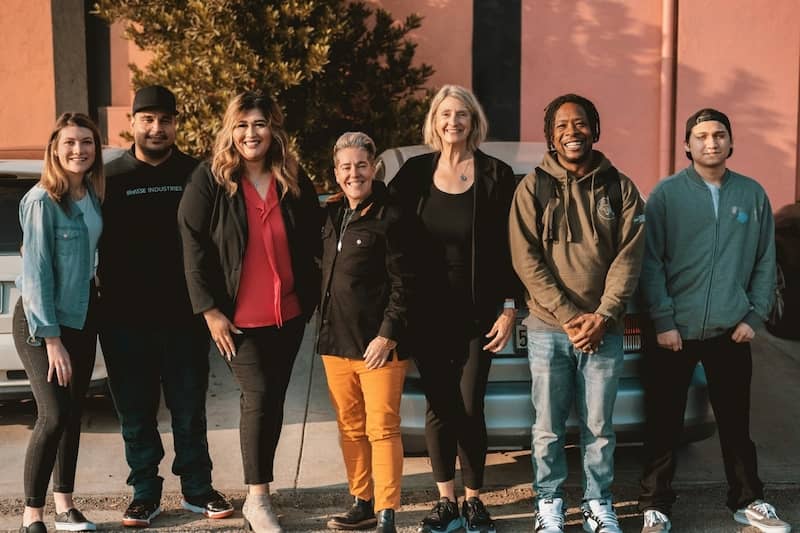
Bitwise Industries: Creating Pathways — Bringing Untapped Talent Into Tech
RSM – Tell us about Bitwise Industries and how it has impacted communities that don’t usually get to be part of the conversation in tech. How can it change both their lives and the industry as we know it?
IOJR. – Bitwise Industries was founded in 2013 to uplift people from disadvantaged backgrounds or coming from a story of systemic poverty by creating pathways into the technology industry. Bitwise builds tech ecosystems focused on activating human potential in America’s poorest zip codes in underestimated cities through three key areas: Workforce, Tech Consulting and Real Estate. Bitwise Workforce teaches people to code, building on-ramps for those traditionally left out of the technology industry. Bitwise Technology Consulting provides cutting-edge custom software from non-traditional talent. Lastly, Bitwise Real Estate transforms blighted historical spaces to create a place for the tech community to take root.
Bitwise is changing the way that underserved people look at their potential. When the average person thinks about working in tech, they’re thinking Silicon Valley, Ivy League degrees, white men in suits with mortgages and sports cars. That seems unattainable when you don’t fit into that image, or don’t have the money or time for college. In reality, tech jobs can happen anywhere, for anyone. They aren’t just at Google or Facebook — they’re at your local hospital, schools, nonprofits and more. These jobs don’t happen in 30-story offices, but they are life-changing when your family has never made more than minimum wage.
And this is where Big Tech comes into the conversation. The tech industry has spent billions of dollars trying to bring more diversity into the talent pool. The results haven’t been great, to say the least. But Bitwise focuses on what the tech industry has failed to do: remove the barriers that keep people out of tech. Single parents can do these jobs, let’s provide childcare; the formerly incarcerated can do it, let’s stop letting the mistakes of their past define their futures. The success stories that emerge from Bitwise are proof that rethinking and removing the barriers to entry brings in thousands of skilled folks that recruiters wouldn’t have considered 10 years ago.
Educating Girls as a Climate Change Solution
RSM – What are some of the great challenges in trying to create opportunities and nurturing talent in “underdog cities”?
IOJR. – When we first started offering training in Fresno, California, the biggest hurdle was convincing people that they could succeed, and that we would do everything we could to help them. It’s hard to dedicate time to training that could be spent making money, when you’re a paycheck away from missing rent or paying a bill.
This is why financial assistance and wraparound services like food, transportation, and childcare are so important to the work that we do. The ugly truth that we’re trying to solve in our cities is that too many people can’t afford to miss a paycheck, even if it will lead to better job opportunities.
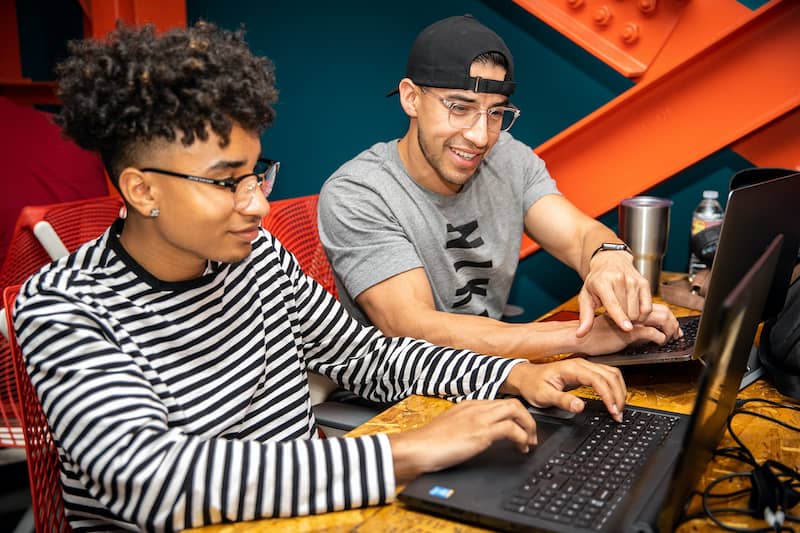
Irma Olguin Jr.’s Tech Ecosystem
RSM – What is Workforce Training? How does the tech ecosystem you hope to build through it work?
IOJR. – There are two parts to Workforce Training: pre-apprenticeship classes and apprenticeship programs. Our pre-apprenticeship classes provide affordable hands-on learning for different coding skills. For those who complete our training, we then provide paid apprenticeships within our company, in partnership with private and public organizations, in each city we serve. These apprenticeships often become the first line on a person’s resume that lead to job offers elsewhere.
The tech ecosystems Bitwise builds are the result of three components coming together: Workforce Training, Enterprise Technology Consulting, and Real Estate. If we’ve trained a local tech workforce, what jobs do they get? Technology Consulting provides opportunities to be fully employed in software development, analytics, sales, and more. Then you have to actually create spaces where the tech industry can take root. So we transform historical buildings in need of TLC into vibrant, community-oriented spaces. The end result is a tech ecosystem that continues growing and thriving as more people are touched by it.
RSM – What would you say are the three most important lessons you’ve learned while trying to bring different, more diverse voices to the tech conversation?
IOJR.
- When you’re new to something, learning alongside people with shared experiences can make it less intimidating. When we started putting together training cohorts for specific groups, such as the formerly incarcerated, everyone understood what their progress meant for them and their peers, and it helped them hold each other accountable.
- We saw at the onset of the pandemic how big of an impact diversity in tech can make. After shutdowns began in March 2020, our team of developers was able to quickly build and deploy OnwardCA, a one-stop platform where anyone impacted by COVID-19 could find essential resources, jobs, childcare, and more. Over 200k Californians accessed it in its first week, and it now serves nine more states and has helped more than 600k Americans. OnwardCA would not have been so successful and helped so many people in their time of need if the developers behind the scenes had not reflected the general population.
- As we speak with people and organizations from all over the country, we have to be mindful of generational community experiences and how they might change from place to place. I’m from Fresno, which was almost entirely agricultural before we started bringing in the tech industry. But folks in Toledo, OH, have a different experience — they’re part of the Rust Belt, and many people are, understandably, distrustful of new industry coming in and making big promises. Part of changing the economic landscape is doing our best to make right by people who live in these communities
Stereotype-Defying Buddhist Monk & Makeup Artist Kodo Nishimura
RSM – Your personal view of success includes helping others succeed with you, do you feel this is a sentiment more startups share nowadays? Have you seen a greater effort to uplift, support and bring untapped talent into tech?
IOJR. – Absolutely. People are much more aware of the privileges and barriers that affect them and others — young people especially. More and more entrepreneurs want to make a social impact with their products. They also understand that diversity in thought and experience is what leads to innovation. Those values impact the heart of their own companies and who they look to hire, and lead.
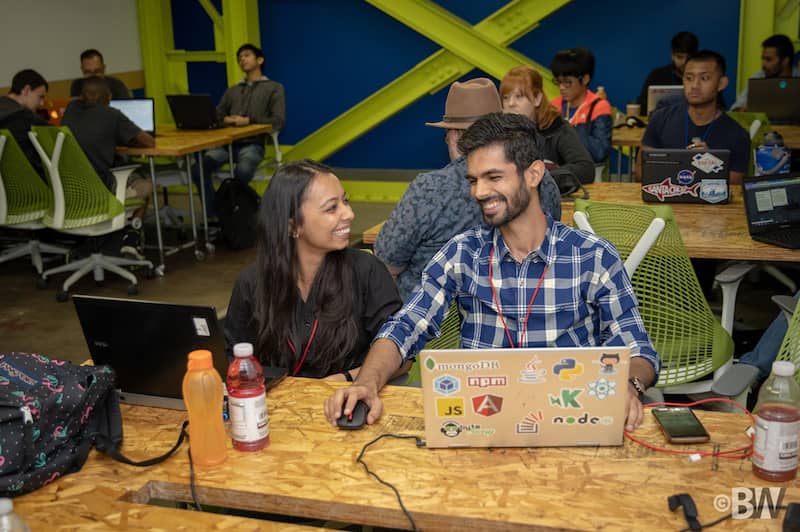
Reaching an Underserved Population — Bringing Untapped Talent into Tech
RSM – How do you convince these untapped sources of talent that they belong at a table where they have seldom been accounted for?
IOJR. – It is really, really hard to envision another way of life for yourself when you come from a story of poverty or marginalization. Going on 10 years into our work, we’ve been able to share so many success stories from former students that make people think, “Hey, that could be my life too.” In the early days especially, it was about meeting people where they were and showing that we were serious about giving them what they needed to succeed. Having a company and classes that are led by people who are from their cities, who know exactly what their challenges and hopes and dreams are, is exactly what people need to see to feel like this belongs to them too. By creating a place of exposure, they understand that it exists; by having representation of people that look like them doing the work, they begin to believe that a career in tech is possible. Most importantly though, we create a welcoming environment that is inclusive, making them feel like they belong.
Diverse Relationships Boost Creativity
RSM – What do you feel is the importance of bringing visibility to your story and other stories like it?
IOJR. – For a long time, the tech industry has felt like this elusive and elitist industry that historically excluded people like me. While there is much work left to be done, part of the problem that still exists is getting people to believe that this can be a path for them as well. Sharing my story and the stories of those who come from different walks of life is extremely important in the work that we do today. See, we can’t wait for the things that were accidental in my life to happen to someone else. We need to be intentional and bring people to the table. The tech industry offers jobs that are transformative — it was in my life, and I know it can be in the lives of some of the most vulnerable nationwide.
Irma Olguin Jr. on Career Growth and Representation

RSM – If you could suggest one action that organizations can take to accelerate the representation of women at the top, what would it be?
IOJR. – Hire and promote people for their potential. Women — really, all marginalized groups — get less opportunities to “prove” their value than their straight, white, male peers. And when you hire based on proven experience, you are leaving a lot of talented and worthy people behind because they aren’t given the same opportunities. If someone has drive, intelligence, and has shown grit, they are going to be a more innovative problem solver/larger asset based solely on their potential.
RSM – If you could suggest one action that women could take to accelerate their career growth, what would it be?
IOJR. – Don’t self-select out of situations that aren’t built for you. It can be really hard to enter spaces and work environments that were intentionally designed to keep you out. Don’t let that stop you. If you can find a place that welcomes you, that’s ideal. But, if you are curious about learning a new skill and the institutions designed to teach you are unwelcoming, refuse to leave. If you can fill a seat, your visibility will inspire other women, and soon you can create an inclusive space while advancing your skill set.
You can follow Irma Olguin Jr. and Bitwise Industries on social:
Irma’s Instagram: @irmaolguinjr
Irma’s Facebook: @irma.olguin.jr
Irma’s LinkedInBitwise Twitter: @BitwiseInd
Bitwise Instagram: @bitwiseindustries
Bitwise Facebook: @BitwiseInd
Bitwise LinkedIn

























